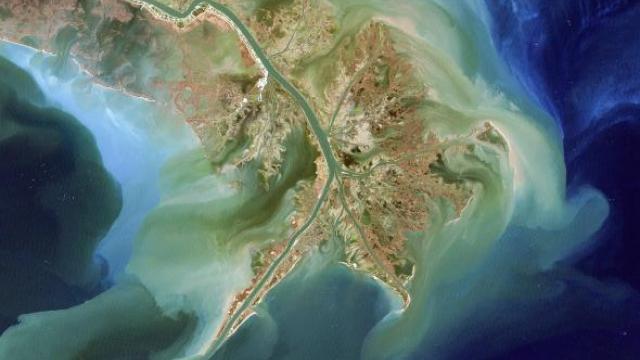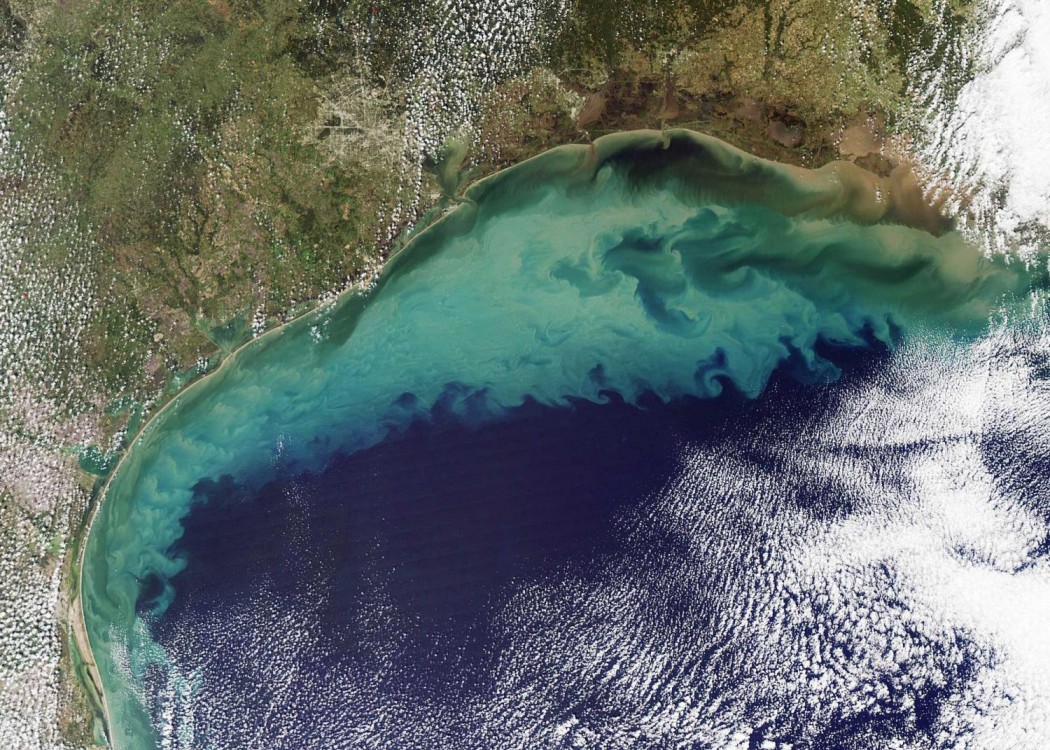
Overshadowed by other frightening reports about the climate, the National Oceanic and Atmospheric Administration earlier this month announced the discovery of a low-oxygen zone stretching from Texas to the mouth of the Mississippi River that is caused by human activity, and is harming marine life across the Gulf of Mexico.
Scientists from Louisiana State University and the Louisiana Universities Marine Consortium measured the northern Gulf in late July and found the area of hypoxia, or low oxygen, to be the largest in the 31 years that the group has been measuring. At about the size of New Jersey, it is now the second largest man-made hypoxia region in the world.
Hypoxia regions, also known as “dead zones,” can be natural, but man-made ones occur primarily through fertilizer runoff. As the rivers that flow into the Mississippi rise to peak level in the spring, more fertilizer runoff from Midwestern farms is deposited into the Gulf of Mexico. Nitrogen-based fertilizers increase the level of phytoplankton, and the increased bacteria that decompose the plankton deplete the water’s oxygen.
“Over 50 percent of nitrogen (runoff) comes from soybean and corn production, and animal manure,” Dr. Nancy Rabalais, lead scientist of the research group, told Occupy.com.
Hypoxia is disruptive to the entire marine ecosystem, affecting everything from the rarely seen marine life at the ocean bottom to the dramatic, large numbers of dead fish that have washed up on local beaches. Where hypoxia emerges, fish economies suffer.
U.S. agriculture policies encourage the large-scale growing of corn and soybeans; both crops are insured by the federal government in case of seasonal loss. Rather than corn on the cob being served on plates across America, however, corn is mostly used for livestock feeding and ethanol. Fertilizer use has increased 300 times over the last half decade in the regions creating the runoff, according to Dr. Rabalais.
Effects of agricultural runoff are not only limited to the Gulf region. Runoff can contaminate drinking wells in the Midwest before even getting to the Mississippi. Two years ago, the utility company Des Moines Water Works unsuccessfully sued agricultural interests over runoff; the case was dismissed, but the utility company contends its water source remains polluted and therefore very costly to filter.
Attempts to control agricultural runoff through voluntary efforts have proven unsuccessful. Farmers in the Des Moines area pledged to reduce agricultural runoff in 2013 but the Minnesota Center for Environmental Advocacy calls the ensuing efforts “too slow.” Speaking more bluntly, former NOAA scientist and University of Michigan professor Don Scavia said the decades-long voluntary approach to reduce runoff throughout the region has been a failure.
The Environmental Protection Agency is responsible for enforcing federal regulations like the Clean Water Act. But President Donald Trump’s budget proposal includes a 40 percent cut in funding for environmental regulation. The head of the EPA, Scott Pruitt, is well known for his hostility to the agency, which he sued 13 times while serving as Oklahoma’s attorney general from 2010 to 2016. Specifically, Pruitt filed an amicus brief in support of the Fertilizer Institute in its suit against the EPA. In his brief tenure as EPA administrator, Pruitt has already overturned or halted nearly two dozen environmental regulations – more than any of his predecessors.
To date, no congress member from Louisiana has made a public statement about the hypoxia discovery. Given lawmakers' outspoken support for the oil and gas industry, the state's congressional delegation isn't likely to put pressure on the EPA anytime soon.
Congressman and House Majority Whip Steve Scalise – who is still recovering from gunshot wounds he sustained at a congressional baseball practice shooting in June – wrote an op-ed in 2016 referring to new regulations for water quality as “radical," stating: “Louisiana property owners do not need unelected bureaucrats in Washington telling them how to use or develop their land.”
Meanwhile, senior Louisiana Sen. Bill Cassidy applauded the EPA’s June announcement delaying implantation of ozone standards. “The EPA is working to ensure clean air and that jobs for Americans are preserved,” Cassidy said in a press release.
But despite corporate cheerleading by the region's politicians, scientists aren't buying it.
“The Gulf is a sick ecosystem,” Dr. Rabalais said. Some of the remedies that she and other scientists have proposed include using alternative crops that are as economically viable as current ones, but with longer roots, and creating buffer zones around fertilized crops to reduce runoff. Until there is a change in regulatory and agricultural policies at the federal level, Rabalais and others warn that the waterways in the middle of the U.S., including the Mississippi and the Gulf of Mexico, will continue to suffer from the effects of environmental and agricultural deregulation.
3 WAYS TO SHOW YOUR SUPPORT
- Log in to post comments












